GA Tech Students Lead Speaker Series
A pair of computer science students at Georgia Tech, Zachary Axel and Parsa Khazaeepoul, hosted an informative series featuring several Turing Award winners who are Jewish.
Sasha Heller is the Web Editor and Copy Editor for the Atlanta Jewish Times

A pair of computer science master’s students at Georgia Tech recently led an informative speaker series featuring several Turing Award winners who are Jewish. The Turing Award, often referred to as the “Nobel Prize of Computing,” is awarded annually to individuals for their contributions of lasting and major technical importance to the field of computing.
Five such award winners joined several other distinguished speakers for the series.
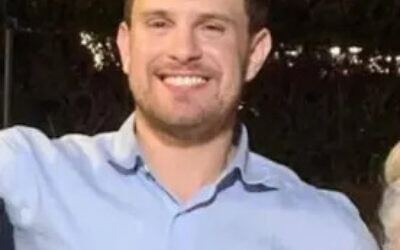
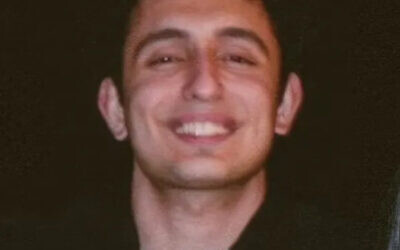
The Turing Award speaker series was created by Georgia Tech students, Zachary Axel and Parsa Khazaeepoul, with support from Zvi Galil, creator of the online master’s in computer science program at the university. A12 Incubator, out of , sponsored the series.
The AJT recently sat down with Axel as he spoke about the significance of this first-of-its-kind series.
AJT: Please describe the concept for the speaker series. Where did the idea originate? And how did you go about bringing the series concept to life?
Axel: The concept of the speaker series was to bring together some of the most accomplished computer scientists to teach the next generation of students and faculty, as well as anyone else in the community who wanted to tune in – it was open to the general public. Listeners could hear stories and the instrumental work and contributions these scientists have brought to society.
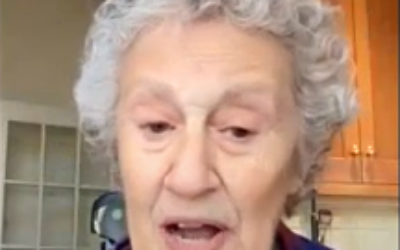
The idea originated after I met with the creator of the C++ programming language, Bjarne Stroustrup, in December of 2023. Bjarne is one of the most accomplished computer scientists in the world, notable for his invention of the C++ programming language and also my professor, Zvi Galil’s, office mate. I had this creative idea to reach out via cold email to Turing Award winners and see if they might be willing to speak to us students via Zoom about a lecture they had given before.
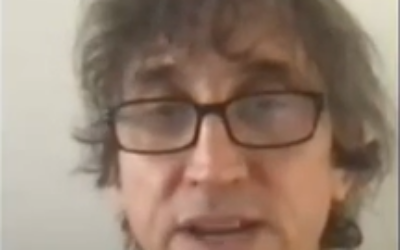
To my astonishment, not one but five Turing Award winners kindly offered to speak: Dr. Leslie Lamport, Dr. Edward Feigenbaum, Jeffrey D. Ullman, Dr. Barbara Liskov, and Dr. Jack Dongarra. We even have our sessions recorded on our website, www.turing.rsvp, for anyone who wishes to watch – it’s free to the community. We really brought the series to life when we invited students and faculty from all across the country to listen to our speakers. Since we hosted speakers via Zoom, students from all over the world joined our sessions. We had students and faculty from Israel, Italy, Switzerland, and many other countries, and we regularly had more than 100-plus audience members tune in per session.
We were also advised on our initiative by my professor, Galil, Emeritus Dean of the College of Computing at Georgia Tech, and Bjarne Stroustrup, his insanely accomplished office mate. Finally, I shared our recordings with my mentor, Dan’l Lewin, President of the Computer History Museum in Palo Alto.
AJT: You mention that four of the five speakers were Jewish. Rhetorically speaking, please explain why this is important.
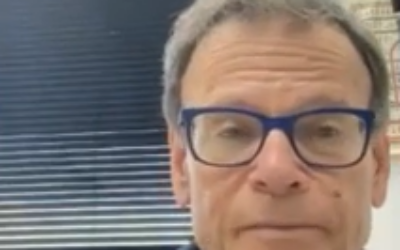
Axel: This is extremely important because it serves as a testament to the kindness (kavod in Hebrew), generosity, and highlighting the significant contributions to which Jewish scientists have contributed to scientific progress. I am extremely proud of the achievements and instrumental scientific contributions of my fellow Jewish colleagues. Our event also was about community (kehila in Hebrew). We successfully brought together Jewish and non-Jewish scientists and students to celebrate scientific progress and inquiry. I hope that Jews across Atlanta can be inspired by the efforts our community took to come together for the sake of scientific inquiry and progress.
AJT: Do you have any plans to continue this speaker series? Maybe with different topics? Or different speakers?
Axel: Probably not. I do not think we can realistically beat the lineup we achieved this semester, and I would rather end on a high note. I am proud of the speaker series we conceived, and I am grateful to share news of this series with my community. I also just want to say a big thank you to my professor, Zvi Galil, for his constant support and guidance in my running this series. It was an absolute blast.
Featured Speakers
Dr. Moshe Vardi
Dr. Leslie Lamport
Dr. Noel Capon
Dr. Barbara Liskov
Dr. Nir Shavit
Jeffrey D. Ullman
Dr. Assaf Schuster
Dr. Jack Dongarra
Dr. Edward Feigenbaum
Dr. Nachum Dershowitz
Dr. Anthony Leggett
- Professionals
- Education
- Sasha Heller
- Georgia Tech
- The Turing Award
- Parsa Khazaeepoul
- Zvi Galil
- Seattle
- Bjarne Stroustrup
- Dr. Leslie Lamport
- Dr. Edward Feigenbaum
- Jeffrey D. Ullman
- Dr. Barbara Liskov
- Dr. Jack Dongarra
- Israel
- Italy
- Switzerland
- College of Computing at Georgia Tech
- Dan’l Lewin
- Computer History Museum
- Palo Alto
- Zachary Axel



comments